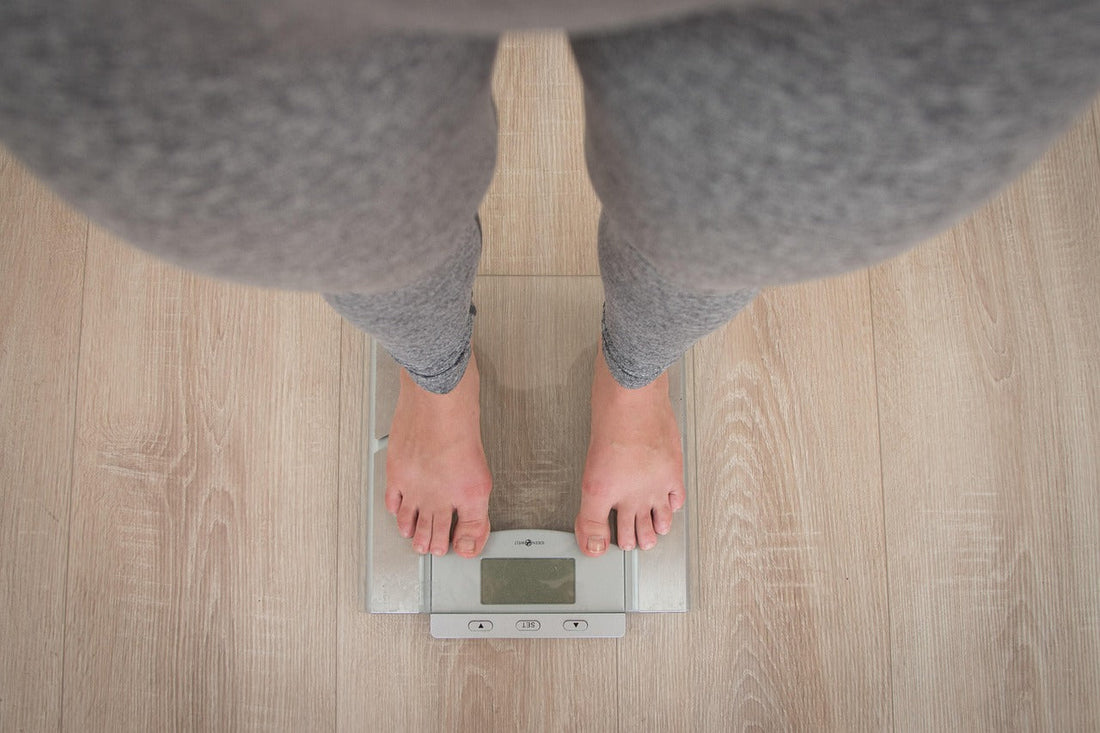
Medically Supervised Weight Loss: The Power of a Healthy Lifestyle During the Process
Why is a Healthy Lifestyle Essential for Medical Weight Loss?
Are you starting a medical weight loss plan? It's important to know that medication is just a tool. A healthy lifestyle is the key to lasting success. Here you'll discover why and how to approach this in practice.
Sustainable Results
Medications such as GLP-1 receptor agonists (e.g., Saxenda® or Ozempic®) or GIP receptor agonists (Mounjaro) reduce appetite and regulate blood sugar levels. While these medications can be effective for weight loss, long-term success doesn't depend solely on medication.
A healthy lifestyle with lasting behavioral changes plays a crucial role. By developing healthy habits, you increase your chances of sustainable weight maintenance, because you can fall back on established patterns that support healthier choices.
Crash diets, on the other hand, often lead to the yo-yo effect: you lose weight in a short time, but without structural behavioral changes it is difficult to maintain the weight.
This emphasises the importance of an integrated approach that combines nutrition, exercise and behaviour change.
A recent study from Denmark underscores this principle by showing that exercise is an essential factor in weight maintenance after taking GLP-1 medication. Participants who combined both medication and exercise gained an average of 2.5 kg (5.5 lbs) less and retained 2.3% less fat mass than those who took medication alone (1). This suggests that physical activity not only helps with weight loss but also supports long-term weight maintenance.
What's more, the same study found that people who added exercise to their treatment were 7.2 times more likely to maintain at least a 10% weight loss a year after starting the medication. This is because exercise helps regulate eating behavior and energy expenditure, significantly reducing the chance of weight gain during and after treatment (1).
Total Health Boost
A healthy lifestyle offers much more than just weight loss:
1. Improved Cardiovascular Health
Cardio exercises like running, cycling, and swimming strengthen your heart and improve blood circulation. This not only reduces your risk of cardiovascular disease but also helps regulate your blood pressure and cholesterol levels. Regular cardio training supports more efficient circulation and increases your endurance (2,3).
2. Better Blood Sugar Control and Stable Energy
A balanced diet with complex carbohydrates and protein helps prevent blood sugar fluctuations. This contributes to a long-lasting feeling of fullness and a stable energy supply throughout the day. Regular exercise also improves insulin sensitivity, which is essential for a healthy metabolism (4, 5).
3. Stronger Muscles and More Flexible Joints
Strength training is crucial for maintaining muscle mass and supporting joints. This contributes to improved mobility and stability, which is especially important in later life. Strength training also plays a vital role in maintaining bone density, especially during weight loss. Recent research from Denmark shows that a combination of strength training and GLP-1 receptor agonists, such as Saxenda, not only promotes weight loss but also helps prevent bone loss (6).
4. More Energy, Better Mood and Increased Confidence
Regular physical activity stimulates the production of endorphins, also known as the "happy hormones." This helps reduce stress, improves your mood, and boosts your self-confidence. Whether you're doing an intense workout or taking a leisurely walk, exercise has a direct positive effect on your mental well-being (7).
5. Better Sleep Quality and Less Stress
An active lifestyle contributes to deeper and restorative sleep. Sufficient exercise helps reduce stress and supports a healthy sleep pattern. People who are overweight or have unhealthy lifestyle habits are more likely to experience sleep problems, further emphasizing the importance of a balanced lifestyle (8,9).
The 5 Pillars of a Healthy Lifestyle During Medical Weight Loss
1. Balanced Diet: What Should You Eat?
A healthy diet is the foundation. Use the Wheel of Five and focus on (5):
-
Fruits and vegetables → rich in vitamins, minerals and fiber.
-
Whole grain products → long-lasting energy and satiety.
-
Proteins → essential for muscle maintenance.
-
Healthy fats → necessary in limited quantities.
-
Less sugar and processed foods → prevents excessive calorie intake.
Smart Choices for Fewer Calories (5):
-
Use the lower limit of recommended portions.
-
Avoid high-calorie add-ons such as sauces and sweet spreads.
-
Drink water or tea instead of fruit juices and soda.
2. Regular Exercise: How Much and What?
Exercise not only helps with calorie burning, but especially with eating behavior and satiety (10).
Why exercise is good for your body:
-
Less abdominal fat (visceral fat) and fat around organs
-
Stronger muscles and more flexible joints
-
More stable blood sugar levels, better blood pressure and cholesterol levels
-
More energy, better mood and more positive self-image
How much exercise do you need?
-
150-200 minutes per week of moderate to intensive exercise (cycling, swimming, running).
-
Strength training twice a week for muscle retention and fat loss.
-
Choose something you enjoy so you can keep doing it.
3. Adequate Sleep Adequate Sleep: Why is it Important?
Sleep plays a crucial role in weight management and overall health.
-
Aim for 7-9 hours of sleep per night
-
Maintain a consistent sleep-wake rhythm
-
Create a calm, dark sleeping environment
4. Stress management:
Chronic stress can hinder weight loss and lead to unhealthy eating behaviors.
-
Relax with meditation, breathing exercises, yoga or a walk in nature.
-
Take regular breaks and get enough exercise.
-
Seek support from friends, family, or a coach.
5. Hydration: How Much Water Do You Need?
Drinking enough water supports your metabolism and can help control your appetite.
-
Drink at least 1.5-2 liters of water per day.
-
Avoid sugary drinks and limit alcohol.
Factors That Influence Your Eating Behavior During Medical Weight Loss
-
Emotions: Learn to recognize emotional eating and find alternative coping strategies, such as taking a walk or talking to a friend when you're feeling down.
-
Environment: Create a healthy eating environment by removing temptations and making healthy options available. Examples include keeping cherry tomatoes and fruit on the counter and not keeping chips or chocolate in the house.
-
Social influences: Involve those around you in your lifestyle change and ask for support.
-
Time management: Plan and prepare healthy meals to prevent impulsive eating.
-
Nutritional Knowledge: Read labels or consult a nutritionist for additional insight.
How to Maintain Your Healthy Habits?
-
Start small – Start with one or two small changes per week, such as adding an extra serving of vegetables to your daily diet
-
Plan ahead – Spend time meal planning and prepping over the weekend for the week ahead.
-
Keep a journal – Use an app or notebook to track your food, exercise, and feelings.
-
Find support – Join a support group or find a buddy who is also working on their health.
-
Celebrate successes – Celebrate every milestone, no matter how small, with a non-food related reward like a massage or a new piece of clothing.
Conclusion: Your Healthy Lifestyle as the Key to Success
A healthy lifestyle is essential for successful medical weight loss. Medication can support this, but your daily choices determine the long-term results. By making conscious changes in diet, exercise, getting enough sleep, and reducing stress, you not only increase your chances of lasting weight loss but also of better health and increased energy.
Want a personalized plan for medical weight loss? Schedule a free consultation with our doctors and discover what's right for you! Get in touch.
References:
-
Lundgren, J.R., Janus, C., Jensen, SBK, Juhl, CR, Olsen, LM, et al. (2021). Healthy weight loss maintenance with exercise, liraglutide, or both combined. New England Journal of Medicine, 384(18), 1719-1730. https://doi.org/10.1056/NEJMoa2028198
-
Corliss, J. (2023, January 1). The many ways exercise helps your heart. Harvard Heart Letter. Retrieved from https://www.health.harvard.edu
-
Johns Hopkins Medicine. (n.d.). Physical activity for heart health. Retrieved February 22, 2025, from https://www.hopkinsmedicine.org/health/wellness-and-prevention/physical-activity-for-heart-health
-
Cardiology Centers Netherlands. (nd). Good and bad carbohydrates: This is the difference. Retrieved February 22, 2025, from https://www.cardiologiecentra.nl/kennis/nieuws-and-publicaties/goede-en-slechte-koolhydraten-dit-is-het-verschil/
-
Nutrition Center. Losing weight with a healthy diet. Retrieved on February 2, 2025, from https://www.voedingscentrum.nl/nl/afvallen/afvallen-met-gezonde-voeding.aspx
-
Jensen, SBK, et al. (2024). Bone health after exercise alone, GLP-1 receptor agonist treatment, or combination treatment: A secondary analysis of a randomized clinical trial. JAMA Network Open, 7(6), e2416775. https://doi.org/10.1001/jamanetworkopen.2024.16775
-
Trimbos Institute. (n.d.). Effects of exercise on mental health. Trimbos Institute. https://www.trimbos.nl/kennis/mentale-gezondheid-preventie/expertisecentrum-mentale-gezondheid/bewegen-en-mentale-gezondheid/effecten/
-
Johns Hopkins Medicine. (nd). The science of sleep: Understanding what happens when you sleep. https://www.hopkinsmedicine.org/health/wellness-and-prevention/the-science-of-sleep-understanding-what-happens-when-you-sleep
-
Trimbos Institute. (n.d.). Sleep is good for your mental health. Trimbos Institute. https://www.trimbos.nl/kennis/mentale-gezondheid-preventie/slapen-is-goed-voor-je-mentale-gezondheid/
-
Guidelines database. Exercise for overweight and obesity in adults and children. Retrieved on February 2, 2025, from https://richtlijnendatabase.nl/richtlijn/overgewicht_en_obesitas_bij_volwassenen_en_kinderen/volwassenen/beweging.html
